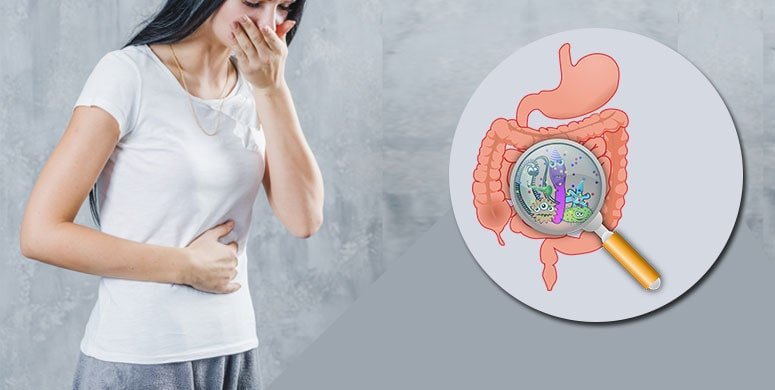Diarrhea is passing looser or more frequent stools than is normal, consistency being more important than frequency. It can be acute or chronic. It can be distressing and unpleasant until it passes, which normally takes a few days to a week in acute cases. Chronic diarrhea may last for months to years and poses serious risks to health in many cases.

Symptoms of Diarrhea
Passing watery or loose stools. Some people may also have other symptoms, depending on the cause. Associated symptoms can include stomach cramps, nausea, vomiting, headache, and loss of appetite. The excessive loss of water in your stools can also sometimes lead to dehydration, which can be serious if not recognized and treated quickly. Signs of dehydration in adults can include:
- Tiredness and a lack of energy
- Loss of appetite.
- Nausea
- Feeling lightheaded
- Dizziness
- Dry tongue
- Sunken eyes
- Muscle cramps
- Rapid heartbeat
Acute Diarrhea
Infection (gastroenteritis) is a common cause in both adults and children. It can be caused by:
- A virus – such as a norovirus or a rotavirus.
- Bacteria – such as Campylobacter and Escherichia coli (E. coli), which are often picked up from contaminated food.
- A parasite – such as a parasite that causes giardiasis, which is spread in contaminated water These infections can sometimes be caught during travel, particularly to areas with poor standards of public hygiene. This is known as travelers’ diarrhea.
Diarrhea can also be the result of anxiety, a food allergy, medication, or a long-term condition, such as irritable bowel syndrome (IBS). Other possible causes of short-term diarrhea include:
- Feelings of anxiety.
- A food allergy.
- Appendicitis.
- Damage to the lining of the intestines as a result of radiotherapy
Chronic Diarrhea
Conditions that can cause persistent diarrhea include:
- Irritable bowel syndrome (IBS)
- Inflammatory bowel disease – Conditions that cause the gut to become inflamed, such as Crohn’s disease and ulcerative colitis.
- Coeliac disease – A digestive condition where you have an adverse reaction to gluten.
- Chronic pancreatitis – Inflammation of the pancreas.
- Diverticular disease – Where small bulges or pockets develop in the lining of the intestine.
- Bowel cancer – This can cause diarrhea and blood in your stools
Treatment
While waiting for your diarrhea to pass, you can ease your symptoms by following the advice outlined below. It’s important to drink plenty of fluids to avoid dehydration, particularly if you are also vomiting. Take small, frequent sips of water. Ideally, adults should drink a lot of liquids that contain water, salt, and sugar. If you are drinking enough fluid, your urine will be light yellow or almost clear. You may use an oral rehydration solution to prevent dehydration if you’re at risk. Oral rehydration solutions usually come in sachets available from your local pharmacist without a prescription. They are dissolved in water and replace salt, glucose, and other important minerals that are lost if you are dehydrated. Doctors may prescribe medicines depending on the severity of the diarrhea. Chronic diarrhea may require investigations and appropriate treatment as per results. Investigations may involve blood tests, radiological tests, endoscopies, and sometimes CT scans also.
Prevention
While waiting for your diarrhea to pass, you can ease your symptoms by following the advice outlined below. It’s important to drink plenty of fluids to avoid dehydration, particularly if you are also vomiting. Take small, frequent sips of water. Ideally, adults should drink a lot of liquids that contain water, salt, and sugar. If you are drinking enough fluid, your urine will be light yellow or almost clear. You may use an oral rehydration solution to prevent dehydration if you’re at risk. Oral rehydration solutions usually come in sachets available from your local pharmacist without a prescription. They are dissolved in water and replace salt, glucose, and other important minerals that are lost if you are dehydrated. The doctor may prescribe medicines depending on the severity of the diarrhea. Chronic diarrhea may require investigations and appropriate treatment as per results. Investigations may involve blood tests, radiological tests, endoscopies, and sometimes CT scans also.
Diarrhea is often caused by an infection. You can reduce your risk by making sure you maintain high standards of hygiene. For example, you should:
- Wash your hands thoroughly with soap and warm water after going to the toilet and before eating or preparing food.
- Clean the toilet, including the handle and the seat, with disinfectant after each bout of diarrhea.
- Avoid sharing towels, flannels, cutlery, or utensils with other household members It’s also important to practice good food and water hygiene while traveling abroad, such as avoiding potentially unsafe tap water and undercooked food.